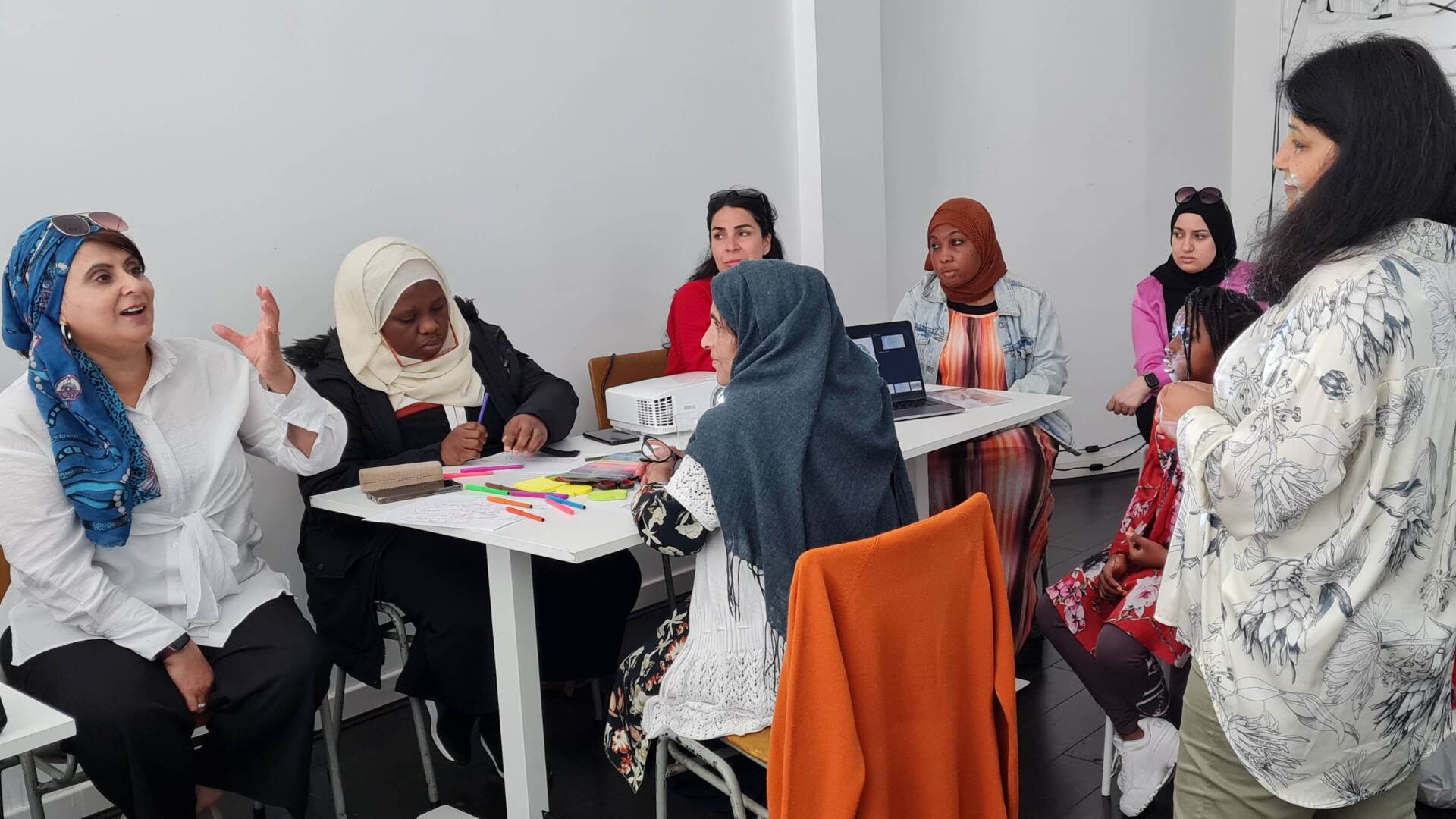
26.06.24

Self-described observer, dreamer and passionate scribbler Wuraola Young, joined these workshops. Across five blogs, Wuraola shares her experience, what she has gained from participating in CULTIVATE, and how her understanding of the climate crisis has developed through creativity and community.
Fun fact: did you know that there is no word for the colour blue in the kinkan language?
Back home in Lagos, Nigeria, a couple of times a week, I would pull up at the shop of Mama Folake, my neighbour, to buy fresh loaves of bread. When Mama Folake had other errands to run, her daughter manned the kiosk after school. She was a bubbly girl and I’d often meet her doing her homework between tending to customers.
One day, it was not only her daughter who was there, another girl about the same age had joined her. The second girl’s name was Ireti and she became a regular fixture at the shop. Once while we were chatting, Mama Folake told me she had adopted her sister’s two daughters and baby boy. She had sadly passed away during childbirth months before.
In Nigeria, we have an odd phenomenon where it rains for seven days nonstop. I am not sure if this is only in Lagos where I lived but I have witnessed it for so many consecutive years, for me it’s now ‘a thing’. I’d often wonder how folks like Mama Folake coped when the heavens chose to stay open for an entire week. Their livelihood was earned day to day from sales they made. Now with her sister’s kids and her own, there was even more pressure for money.
“How do you begin to have a conversation, acknowledge, or solve a problem you don’t have the language for?”
Today’s cross-generational group at the climate change art workshop was even more diverse than our usual mix of Scots, Brits, Asians, and Nigerians, as we had Argentine guests who were holidaying in Dundee that weekend.
Our conversation this time turned to our lived experience with things that contribute to the challenge of climate change. The grandmas reminisced about how they used cloth nappies instead of diapers when they had babies and while they were growing up as girls, they used strips of cloth during their periods.
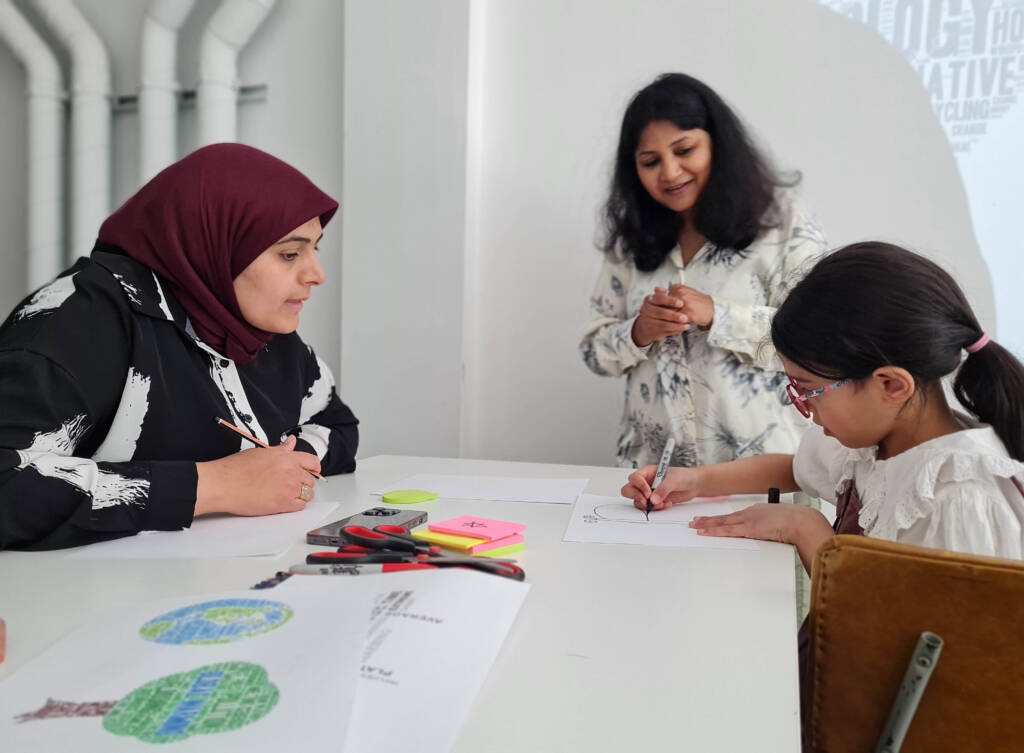
I couldn’t imagine living that life, the hassle of it all! But that reality is still being lived by many, especially in developing countries; girls use strips of cloth as period pads, and mothers use cotton cloth for their babies. It came down to money, only those who were well above the poverty line could afford to buy disposable diapers and pads.
It seemed to me that climate change was a conversation prevalent in industrialised nations and amongst the folk in the middle class and up. Perhaps rightly so because the skew of wealth resulted in heavy consumerism which increased demand for manufactured goods; more cars on the roads, more frequent air travel etc.
On top of that was the challenge of language. All of us that were from the global south realised we had limited vocabulary to express words like climate change, greenhouse effect, greenhouse warming, ozone layer depletion.
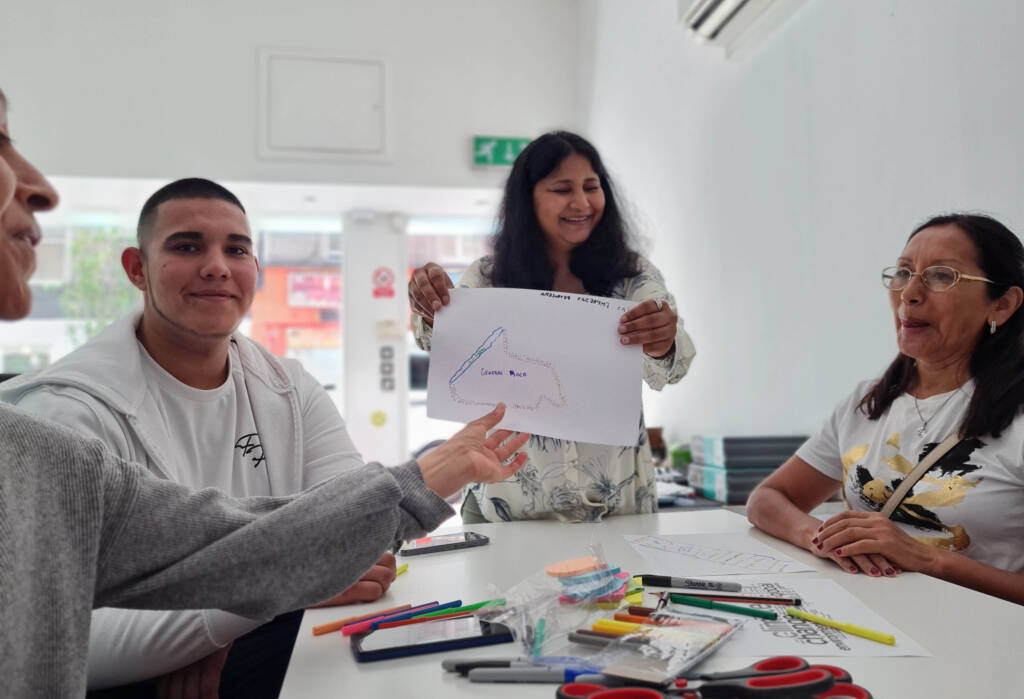
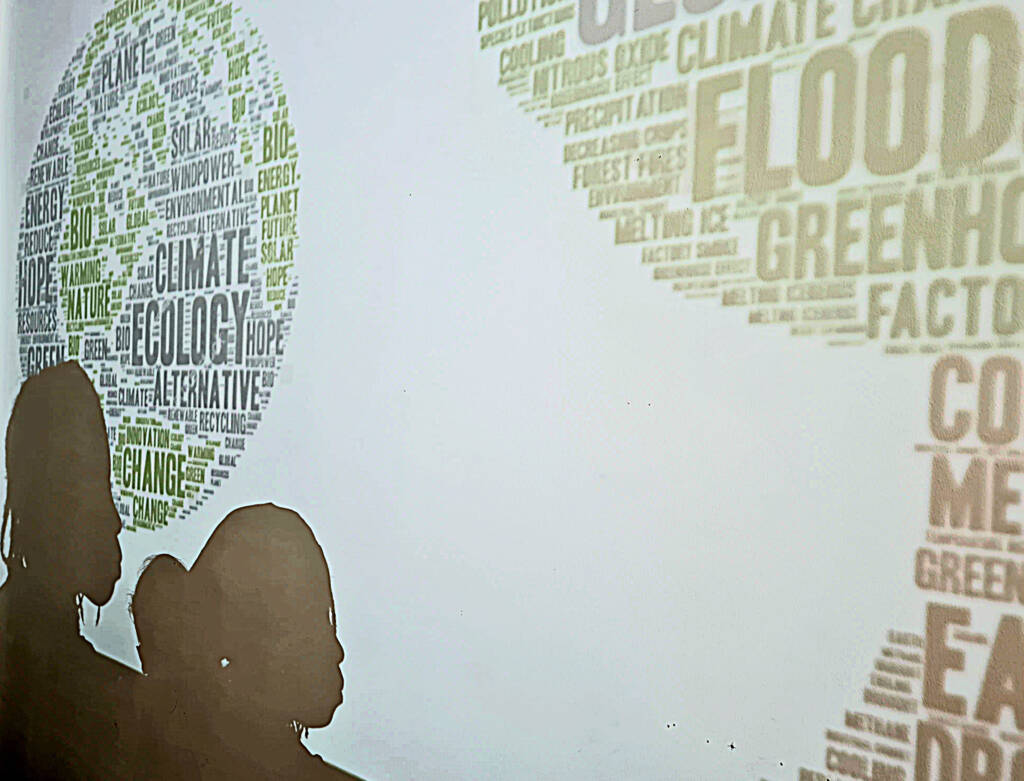
Even our Spanish-speaking guests were hard-pressed to find translations for some of the words. How do you begin to have a conversation, acknowledge, or solve a problem you don’t have the language for?
However, all of us without exception had a narrative about a natural phenomenon that has been adversely affected by climate change. Through interpretation from Spanish to English by her daughter, the Abuela told of how one of the major rivers running through their country and supporting the lives of surrounding communities is drying up due to drought.
One of the solutions we came up with was the need to reduce our overall consumption for starters. Almost all of us had elaborate wedding dresses we’d never worn again, or outfits for ‘that one’ special occasion we had found no other use for. We could convert the wedding dresses or rent them out, and instead of buying a new outfit for every occasion re-use or rent something from someone else.
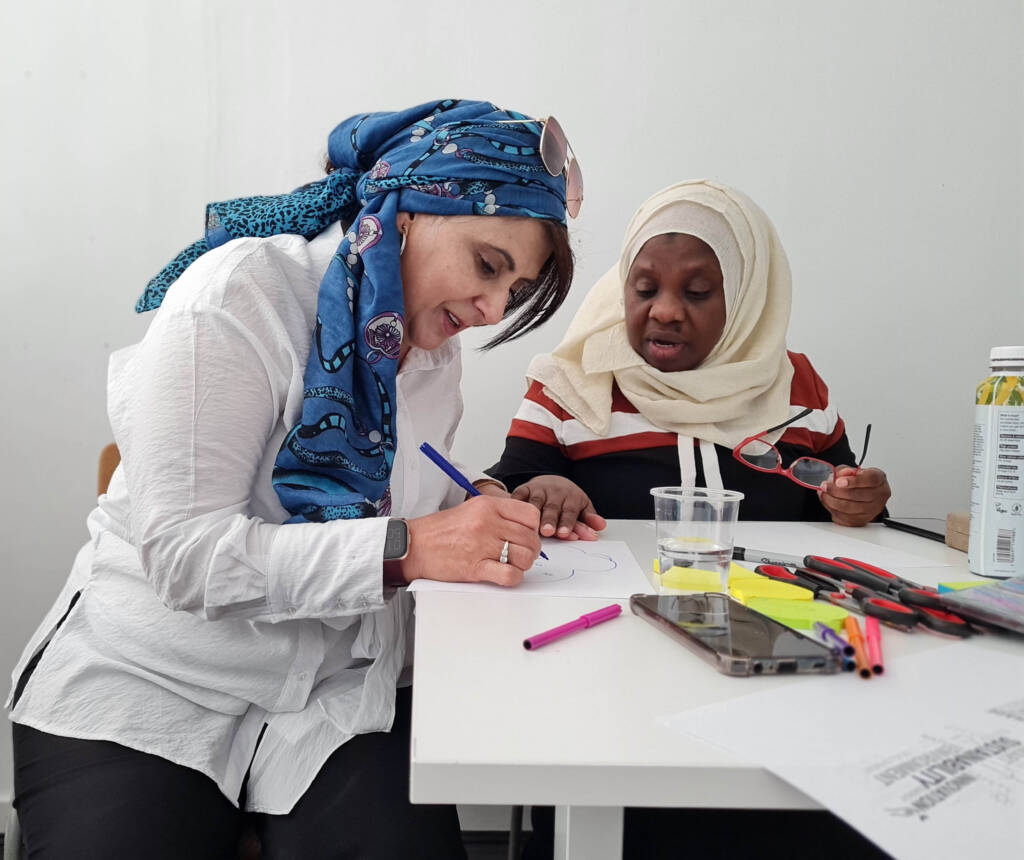
To be honest, I enjoy the thrift culture here. I love that I can buy pre-loved goods conveniently. Back home, aside from the hassle of access, thrift shopping is not ‘middle-class’ appropriate. I couldn’t shake off the realisation that things I had taken for granted because of my privileged access to it was part of the problem.
Reduced consumption would mean reduced demand for energy and all the resources that go into making the goods. If we don’t demand it or keep buying, companies won’t need to keep supplying.
To cement our learning today, we made word clouds and created a 3D work on canvas using rolled-up newspapers. It’s interesting to see how being tactile helps to become more confident with new knowledge. It goes from being just stuff I know, to something I carry and can share with others.
This was the first time I heard of greenwashing. I am totally gobsmacked that companies are exploiting the rising awareness to preserve the environment to line their pockets. Then again, we consumers need to be less blasé about how we spend our money.
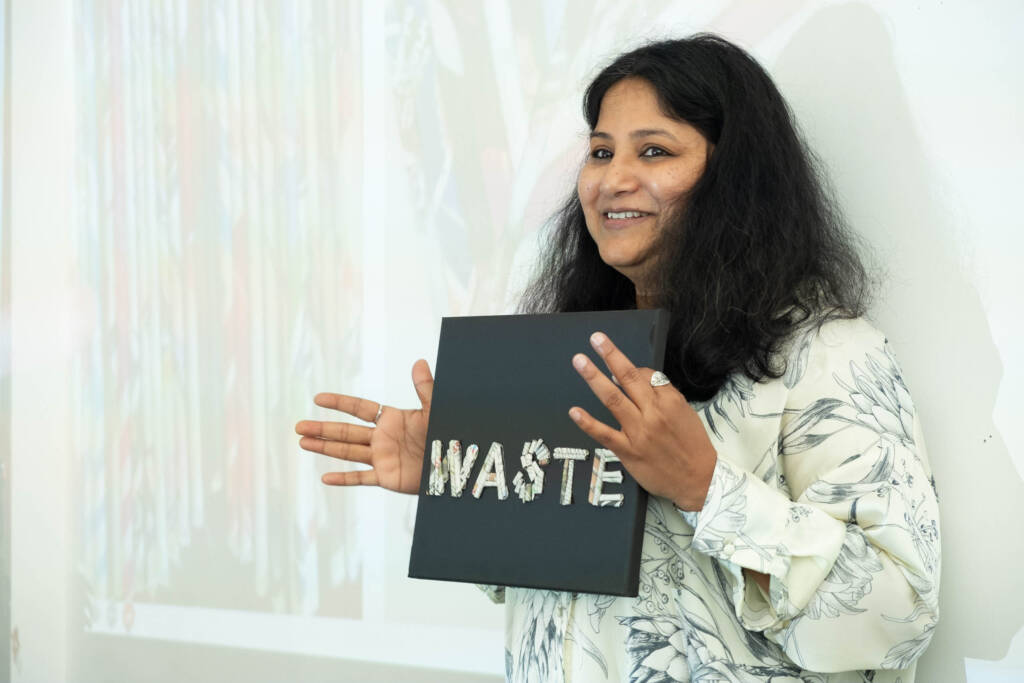
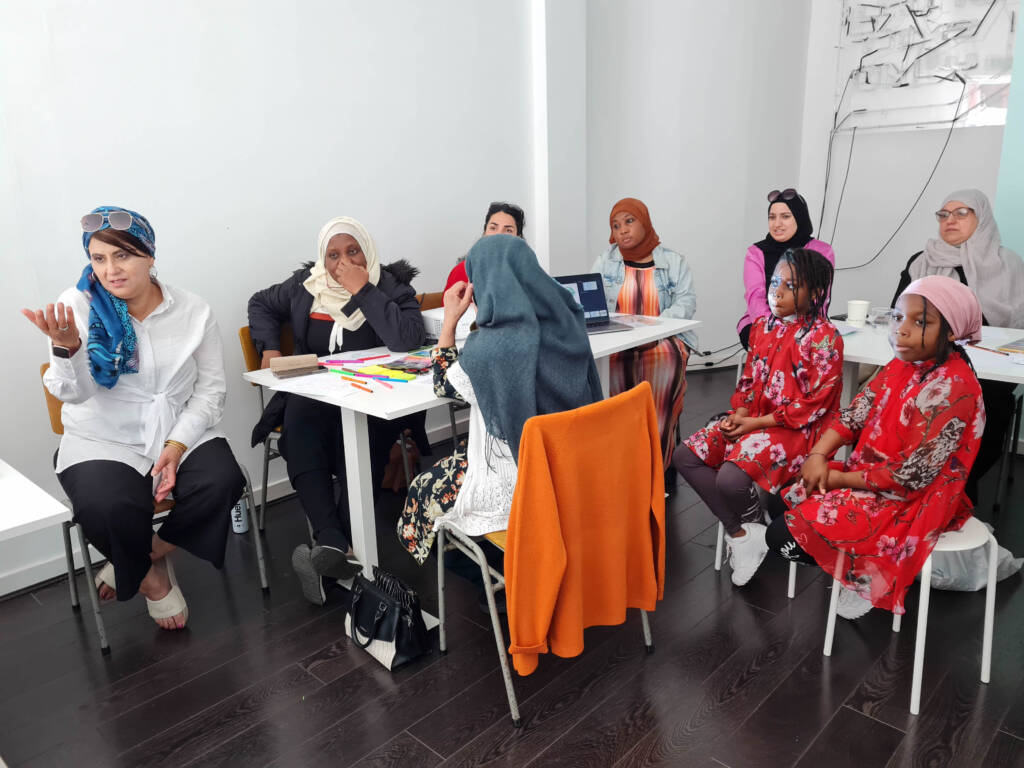
If we really care, we need to invest the time to know that a product is not environmentally friendly simply because it:
There are all sorts of gimmicks out there exploiting the moral consciousness of consumers to be part of the drive to preserve the environment. One of the easiest ways to not fall for the scam of greenwashing is simply to BUY LESS. And if you must buy, put your money where your mouth is (pun intended) do some research or just buy local – from farmers markets, small trusted companies instead of huge ones who throw money behind false advertising.
My thoughts turned to Mama Folake. Now with six mouths to feed, I was certain that the three maturing girls and the infant would not be enjoying the convenience of disposable sanitary wares. The capital of her entire store was no more than a hundred pounds, her priority would be to keep their stomachs full and the lights on. Inadvertently, she’d be doing a good thing for the environment by using cloth nappies, although to her it may feel more like deprivation.
But how do you begin to have the conversation about climate with her when we are missing the very words that will convey it clearly? For the Folakes of this world, even without the language barrier, they cannot hear you if their very survival is on the line.
Wuraola Young specializes in helping individuals achieve their most important goals. She has an MSc in Psychology from the University of Dundee, a background in Neuro-Linguistic Programming, and proficiency in Subconscious Remapping. Read more from Wuraola.
CULTIVATE is a Culture Collective leadership programme led by Creative Dundee. The programme works with local creative practitioners to place creativity at the heart of climate justice, developing action with communities across the Tay region. Discover more about CULTIVATE and meet our second cohort of Creative Practitioners.

If you would like to support us in creating even better content, please consider joining or supporting our Amps Community.